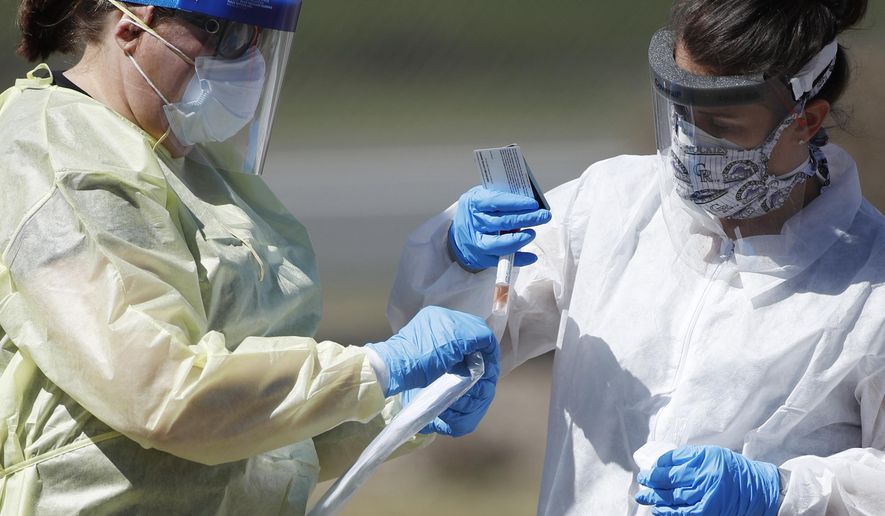Moderna Inc., a Massachusetts-based biotech company, on Monday reported positive interim data in the first phase of a coronavirus vaccine trial, saying some patients who were vaccinated developed antibodies at levels mirroring recovered COVID-19 patients.
The Phase 1 study included 45 people ages 18-55. The study was split so that 15 participants took a low dose, 15 took a mid-level dose, and 15 took a high dose.
Dr. Stephen Hoge, the company’s president, said 30 participants showed antibody levels that met or exceeded those found in recovered coronavirus patients.
“These interim Phase 1 data, while early, demonstrate that vaccination … elicits an immune response of the magnitude caused by natural infection starting with a dose as low as 25 [micrograms],” said Dr. Tal Zaks, the company’s chief medical officer.
The study is being conducted in concert with the National Institutes of Health.
Dr. Hoge said eight subjects appeared to have gotten to the point where the antibodies could neutralize the virus and prevent its ability to infect human cells.
“We’re quite pleased with the breadth of the immune response so far,” Dr. Hoge said on “CBS This Morning.”
He said 45 people is a “relatively small number” but that the company will be looking at 600 people as part of a Phase 2 study that should start soon.
The company said it hopes to proceed to a Phase 3 trial in July.
“Our goal is to have a vaccine available for broad distribution by year-end or early next year,” Dr. Hoge said.
The news buoyed Wall Street, with Moderna shares up over 24% at 1 p.m. Monday.
A vaccine is considered the most critical step in healing a world that’s been turned upside-down by the coronavirus. Since its discovery in China in December, the virus has infected more than 4.8 million people and killed over 315,000 worldwide.
The U.S. has recorded nearly 1.5 million infections and almost 90,000 deaths.
To get a vaccine out to the masses, a company will have to get its efficacy data “really pinned down” to show the shots are protective, said Dr. Michael Mina, an assistant professor of epidemiology at Harvard T.H. Chan School of Public Health.
“You have to let people get exposed naturally and do the efficacy studies to see that they’re not getting infected,” he said. “That just takes time. In particular, it’s going to take an increasing amount of time now that social distancing has brought the virus to lower numbers. Of course, now that things are opening up, those studies might be able to be accelerated once they start.”
Dr. Mina said he could see a scenario in which a successful vaccine is given authorization for emergency use in some places, such as nursing homes, before it is generally available to everyone.
President Trump may have referred to the Moderna trial when he spoke briefly to reporters Sunday at the White House upon returning from Camp David.
“Tremendous progress is being made on many fronts, including coming up with a cure for this horrible plague that has beset our country,” Mr. Trump said.
Dr. Moncef Slaoui recently resigned from Moderna’s board of directors so he could be the chief scientist for “Operation Warp Speed,” the Trump administration’s newly announced campaign to secure a vaccine by the end of the year.
“I have very recently seen early data from a clinical trial with a coronavirus vaccine,” Dr. Slaoui said last week. “And this data made me feel even more confident that we will be able to deliver a few hundred million doses of vaccine by the end of 2020.”
Sen. Elizabeth Warren, Massachusetts Democrat, said Dr. Slaoui needs to divest from any financial interests he might still have in the company.
• Tom Howell Jr. contributed to this report.
• Dave Boyer can be reached at dboyer@washingtontimes.com.
• David Sherfinski can be reached at dsherfinski@washingtontimes.com.




Please read our comment policy before commenting.